The firing of National Security Agency chief, Gen. Timothy Haugh and his deputy, Wendy Noble, has gone largely unnoticed amid the chaos over tariffs, even though it sets a dangerous precedent.
The dismissals occurred after a White House meeting between the president and his staunch supporter, Laura Loomer, and appear to have been done at her request.
“NSA Director Tim Haugh and his deputy Wendy Noble have been disloyal to President Trump,” Loomer posted on X. “That is why they have been fired.”
The allegiance of military officers is to the country, not the president. As Trump has made abundantly clear, however, he values loyalty to him above all else.
“We’re always going to let go of people — people we don’t like. … or people that may have loyalties to someone else,” the president said in reference to the dismissals.
Haugh’s firing follows the dismissal of Joint Chiefs of Staff Chairman CQ Brown, Jr., allegedly for supporting DEI in the military. Trump also removed two female admirals, Chief of Naval Operations Lisa Franchetti and Coast Guard Commandant Linda Fagan. He also fired the top judge advocate generals of the Army, Navy and Air Force.
As commander-in-chief, the president does have the authority to replace generals and admirals, but this usually occurs during wartime as a result of command failures or disagreements over strategy.
Adm. Husband Kimmel and Gen. Walter Short were relieved of their commands and formally admonished following the Japanese attack on Pearl Harbor.
During the Korean Conflict, Harry Truman fired five-star general and WWII hero Douglas MacArthur, primarily because he ignored the president’s direct orders and openly criticized his policies.
Truman faced a storm of criticism for his decision, but history has been kinder to him, recognizing MacArthur as an out-of-control general who might have gotten the United States into a conflict with China.
During the Vietnam War, the Johnson administration fired generals who criticized its strategy, and in 1971, Maj. Gen. James Baldwin was removed from his command and admonished for “substandard performance of duty.”
President Obama replaced Gen. David McKiernan with Gen. Stanley McChrystal as the senior military officer in Afghanistan, but he based that decision on McChrystal’s expertise in counterinsurgency, which was the new focus of the campaign.
In none of these cases did the president cite disloyalty as a reason for removing a senior officer.
The uniformed services occupy a unique position in the federal government. Officers and enlisted personnel must obey the lawful orders of the commander-in-chief.
However, the Uniform Code of Military Justice, which regulates their professional conduct, explicitly requires members of the armed forces to disobey an order that is “contrary to the constitution” or “the laws of the United States” or that is “patently illegal . . . such as one that directs the commission of a crime.”
This guidance puts the soldier in the unenviable position of having to determine, perhaps in the middle of a crisis, whether an order is legal or illegal.
That reality makes the selection of officers for their competence and integrity, not their personal loyalty to a particular president, all the more important. Trump has made no secret of his desire for an officer corps that will obey any order he gives them, just as he has demanded a compliant Department of Justice that will do his bidding.
Legal scholars fear that the president might use the 1807 Insurrection Act, which grants him broad latitude to deploy the military to “enforce federal authority” against legitimate protestors or anyone else who opposes him.
In his executive order “Declaring a National Emergency at the Southern Border of the United States,” Trump called on the secretaries of Defense and Homeland Security to make “recommendations regarding additional actions that may be necessary to obtain complete operational control of the southern border, including whether to invoke the Insurrection Act of 1807.”
If he gets away with using the act on the border, experts believe, he may employ it within the country.
During his first administration, the president wanted to use the military against Black Lives Matter protestors, only to be thwarted by the chairman of the Joint Chiefs of Staff, Gen. Mark Milley. Would senior officers chosen for their loyalty show the same restraint?
The concern also exists in the arena of foreign policy.
Trump has vowed that the U.S. will “go as far as we have to” to gain control of Greenland. Seizing the island by force would be tantamount to declaring war on our NATO ally, Denmark.
Would a Pentagon staffed with presidential loyalists obey an order to invade, or declare it illegal and refuse to comply?
The founders of the Republic rightly feared a standing army that could become an instrument of tyranny. As soon as they ratified the Constitution, they insisted that officers swear to uphold it.
In addition to their role in defending the country in a time of war or national emergency, senior military officers advise the president on national security. They must be apolitical and free to speak their mind, even when the commander-in-chief does not like what they have to say.
Yes-men chosen for their unwavering loyalty cannot do that. A politicized military committed to supporting the president, no matter what, poses an existential threat to democracy.
Once he consolidated power in Germany, Adolf Hitler changed the oath taken by members of the armed forces. They had previously sworn “loyalty to the constitution” and vowed to “protect the German nation,” but now had to “render unconditional obedience to Adolf Hitler.”
We do not live in Nazi Germany, and Trump is not Hitler. However, the lessons of history should not be ignored. A soldier’s ultimate loyalty is, and must always be, to the Constitution, the country and the American people.
Tom Mockaitis is a professor of history at DePaul University and the author of “Conventional and Unconventional War: A History of Modern Conflict.”



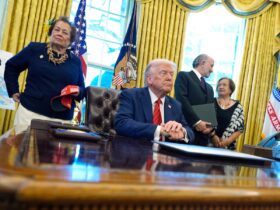
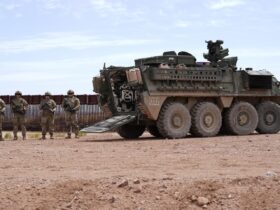
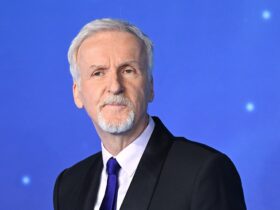
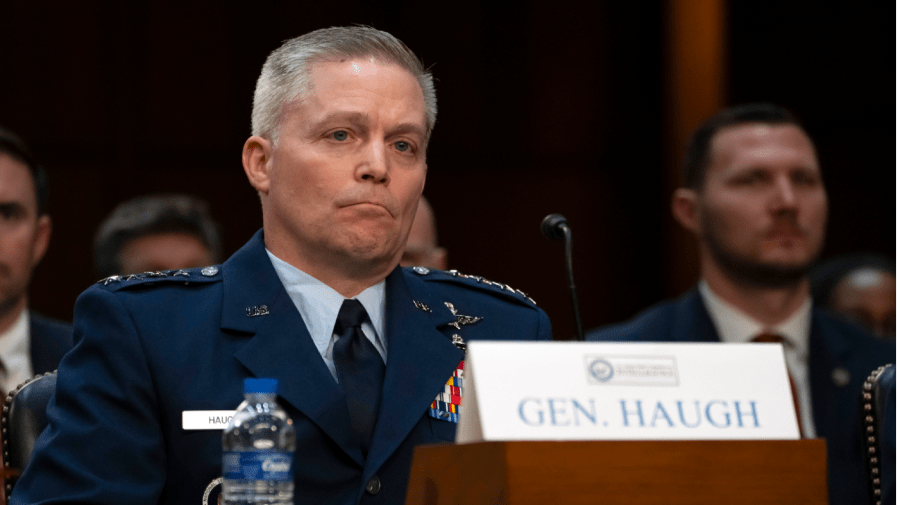
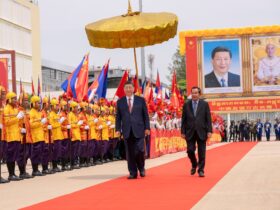





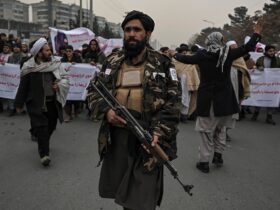

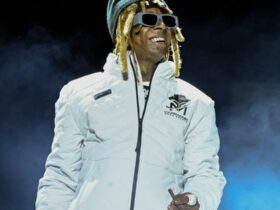
Leave a Reply